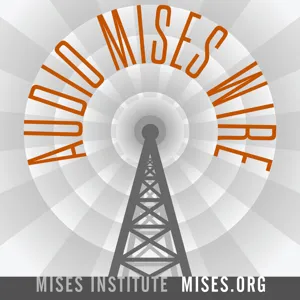Podcast Summary
Free Market vs. Historical Context: An extreme version of free market capitalism, disregarding historical context and concrete circumstances, can lead to dangerous consequences, but the free market remains the best option for economic efficiency and freedom
The philosopher Clay Raine warns against an extreme version of free market capitalism, drawing parallels between it and the radical ideology of the French Jacobins during the Revolution. Raine argues that an overzealous adherence to abstract principles and disregard for historical context and concrete circumstances can lead to dangerous consequences. He believes that values stem from people's lives and traditions, and that attempts to impose abstract ideals on society without regard for specific circumstances can be morally perverse. However, Raine also acknowledges that economics is a value-free science, and that the free market is the only viable method for producing and distributing goods and services in any large-scale economy. Despite the historical criticisms, the free market remains the best option for ensuring economic efficiency and freedom.
Free Market and Jacobinism: The argument connecting the free market and Jacobinism is flawed as it arbitrarily conjoins the two and derives Jacobinism as a conclusion, not a necessary outcome.
The argument that the free market has a Jacobin nature by virtue of its revolutionary effects on social institutions is a weak one. Rin's argument, which relies on this connection, is flawed because it arbitrarily conjoins the market with Jacobinism and then derives Jacobinism as a conclusion. This is similar to arguing that baseball is Jacobin by defining baseball as baseball plus Jacobinism. While some may agree that the market can lead to the overthrow of traditional institutions, it does not necessarily require revolution to get there. A person could endorse capitalism as a peaceful means of uprooting backward beliefs and related social structures. Therefore, the connection between the free market and Jacobinism is not a meaningful one.
Capitalism and Jacobinism: The relationship between capitalism and Jacobinism is complex, and the impact of capitalism on society is not predetermined. The social system that accompanies the free market can be Jacobin or traditional, depending on the values and ethical and cultural health of the society.
The impact of capitalism on society, specifically in terms of its effect on civilized life and the emergence of Jacobinism, is not a fixed or predetermined outcome. Rin's argument, as presented in the text, suggests that the social system that accompanies the free market can be Jacobin or traditional, depending on the values and ethical and cultural health of the society in which it operates. The free market itself does not have an inherent tendency towards Jacobinism, and its impact can vary greatly depending on the specific historical manifestation. This argument challenges the notion of a simple cause-and-effect relationship between capitalism and Jacobinism. Instead, it highlights the complexity of the relationship between economic systems and societal values.

